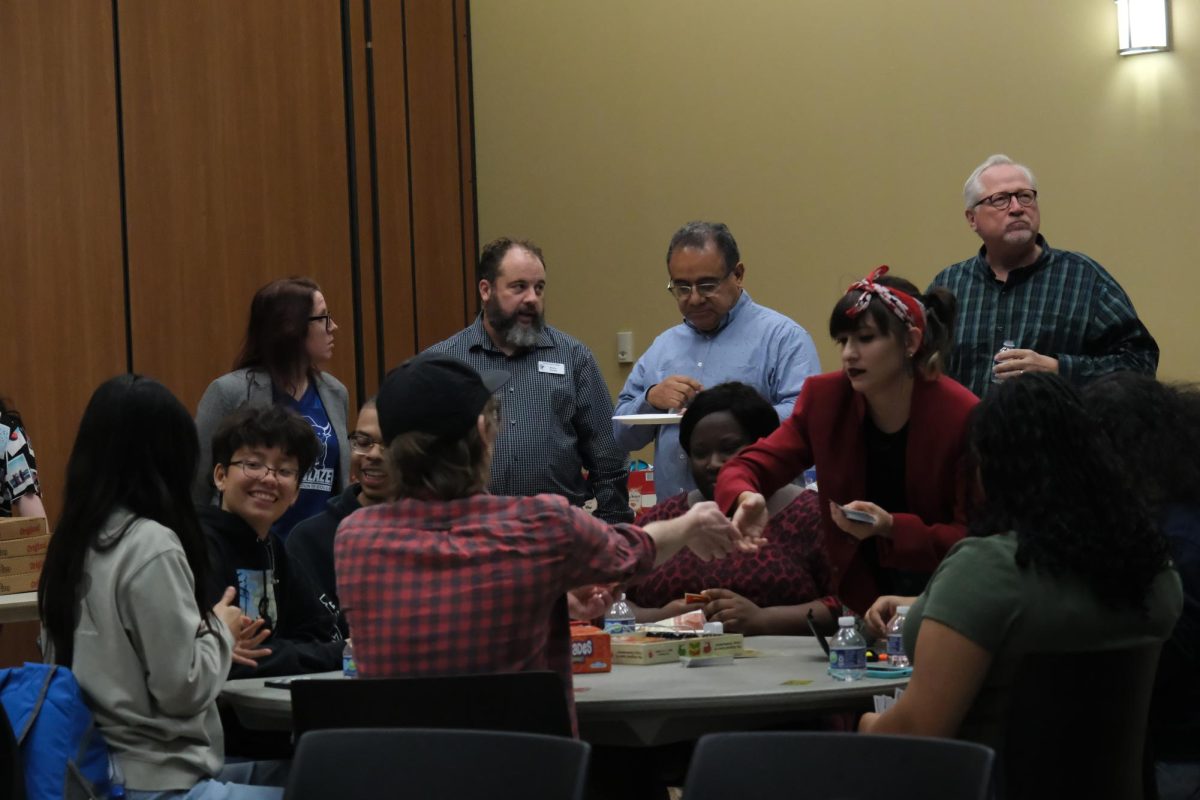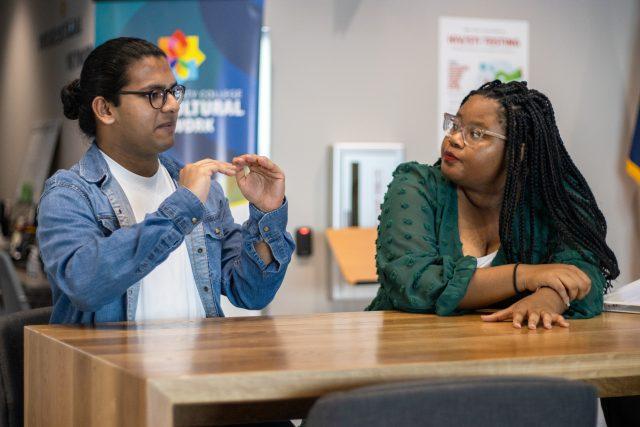By Juan Ibarra/reporter
Visiting different countries is a life-changing experience, according to a panel of college graduates.
During Global Citizenship Awareness Day, former students discussed the experiences they had while studying abroad and went over the concerns many students have of traveling like the cost, something that can keep students from even considering the idea.
Baylor graduate Caroline Grace shared her thoughts on the cost factor and her experience when she traveled to India.
“People always think ‘you’ve got to be rich’ when in reality that isn’t the case,” she said.
While the cost for studying abroad was approximately the same as tuition on campus, the housing was competitive, said Baylor alumnus Lizzie Roberts, adding it required her to be on alert for when to apply for housing.
“There are many scholarships you can apply for that will transfer to studying abroad, and there are even a few that are made specifically for studying abroad,” Grace said.
The trio of women shifted their focus into their pre-trip fears and what the reality of the actual countries were like. They learned that their concerns were no longer relevant once they landed in the new countries.
Trinity University alumnus Susan Clark was also on the panel and shared what she learned during her experience in London.
“I was stressed out about not being able to use my time as efficiently as I would hope. However, it was a rather easy transition,” she said.
The change in location didn’t disrupt any school time the graduates had during their time abroad, and they were able to enjoy their free time as they wanted while still saving some time for their studies.
“It was not a stressful academic environment,” Clark said. “It fostered a community that wasn’t about tests and was more about learning culture.”
While Clark’s fears revolved around her academics, Roberts’ worries revolved around being in a foreign country. She discussed how the weeks leading up to her trip she became anxious to be in a new place with no connections.
“I was afraid of the language and cultural barrier, but once I was there that all disappeared,” Roberts said.
Roberts shared her story of spending a semester in Korea during which she learned her fears were unnecessary. She made friends with the other people in her study abroad group and learned she would be okay while in a new environment. She told those in attendance to be adventurous and get out their comfort zones.
“Through the people I met, I gained more awareness for the rest of the world,” Roberts said.
The experiences the former college students had while traveling to new settings with almost no one they knew gave them perspective on not just new cultures but the world in its entirety.
“The world is globalizing. It’s not enough to understand other cultures,” Clark said. “People need to experience them to get the full picture.”
The graduates on the panel also discussed how most four-years have a study abroad department and how easy it is to sign up for the program.
They agreed that food is the best part of traveling and shared details of the different types of food they experienced on their travels from London, India, Turkey and Korea.
NW student Grant Pearson said the panel approached studying abroad in a way he hadn’t thought of before.
“The presenters not only sparked my interest but also made it seem possible to travel abroad,” Pearson said. “I previously hadn’t thought about traveling for a semester, but now it seems more welcoming.”
Becoming globally conscious is more important now than ever before, said Tony Roberts, event coordinator and NW philosophy and world religion professor.
“Events like these reminds us that our cultural identities are an amazingly diverse and wonderful feature of our humanity,” he said.








































